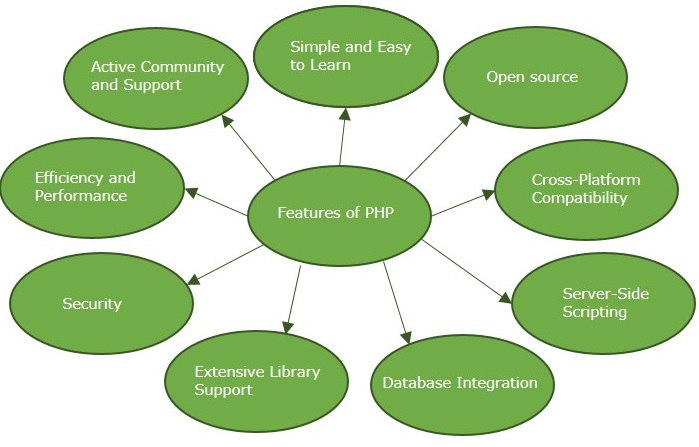What is PHP
PHP is a widely-used open-source server-side scripting language that is especially suited for web development and can be embedded into HTML.
Key Features of PHP:
- Dynamic Website Creation: PHP enables the creation of dynamic web pages that can interact with databases and perform various functions based on user input.
- Easy to Learn: With a syntax similar to C programming, PHP is relatively easy to learn for beginners.
- Open-source: PHP is freely available and constantly evolving due to contributions from a large community of developers.
Advantages of PHP:
- Platform Independent: PHP runs on various operating systems like Windows, Linux, Unix, and macOS.
- Scalability: PHP applications can easily scale with growing business needs.
- Database Support: PHP offers support for numerous databases including MySQL, PostgreSQL, and Oracle.
Overall, PHP is a versatile language that powers a significant portion of the web and is a valuable skill for developers and webmasters.
Features of PHP
PHP, a powerful server-side scripting language, offers a wide range of features that make it a popular choice for web development. Below are some of the key features of PHP:
1. Dynamically Typed
PHP is a dynamically typed language, meaning you do not need to declare variable types. This enhances flexibility and speeds up development.
2. Extensive Library Support
PHP has a vast collection of built-in functions and libraries that enable developers to perform various tasks efficiently without reinventing the wheel.
3. Platform Independent
PHP runs seamlessly on different operating systems like Windows, Unix, Linux, macOS, making it a platform-independent language.
4. Database Integration
PHP offers excellent support for database integration, allowing developers to interact with popular databases like MySQL, PostgreSQL, SQLite, and more.
5. Scalable and Maintainable
PHP allows for the creation of scalable applications that can handle a large number of users. It also promotes code maintainability through features like namespaces and autoloading.
6. Security Features
- Data Filtering: PHP provides functions for filtering user input to prevent common security vulnerabilities like SQL injection and cross-site scripting (XSS).
- Session Handling: Secure ways of handling session data and cookies are available in PHP for robust user authentication and authorization.
7. Easy Integration
- HTML Integration: PHP can be seamlessly embedded within HTML, making it easy to mix PHP code with HTML for dynamic content generation.
- API Integration: PHP supports REST and SOAP APIs for easy integration with other web services.
These features make PHP a versatile and efficient choice for developing web applications with dynamic functionalities.
